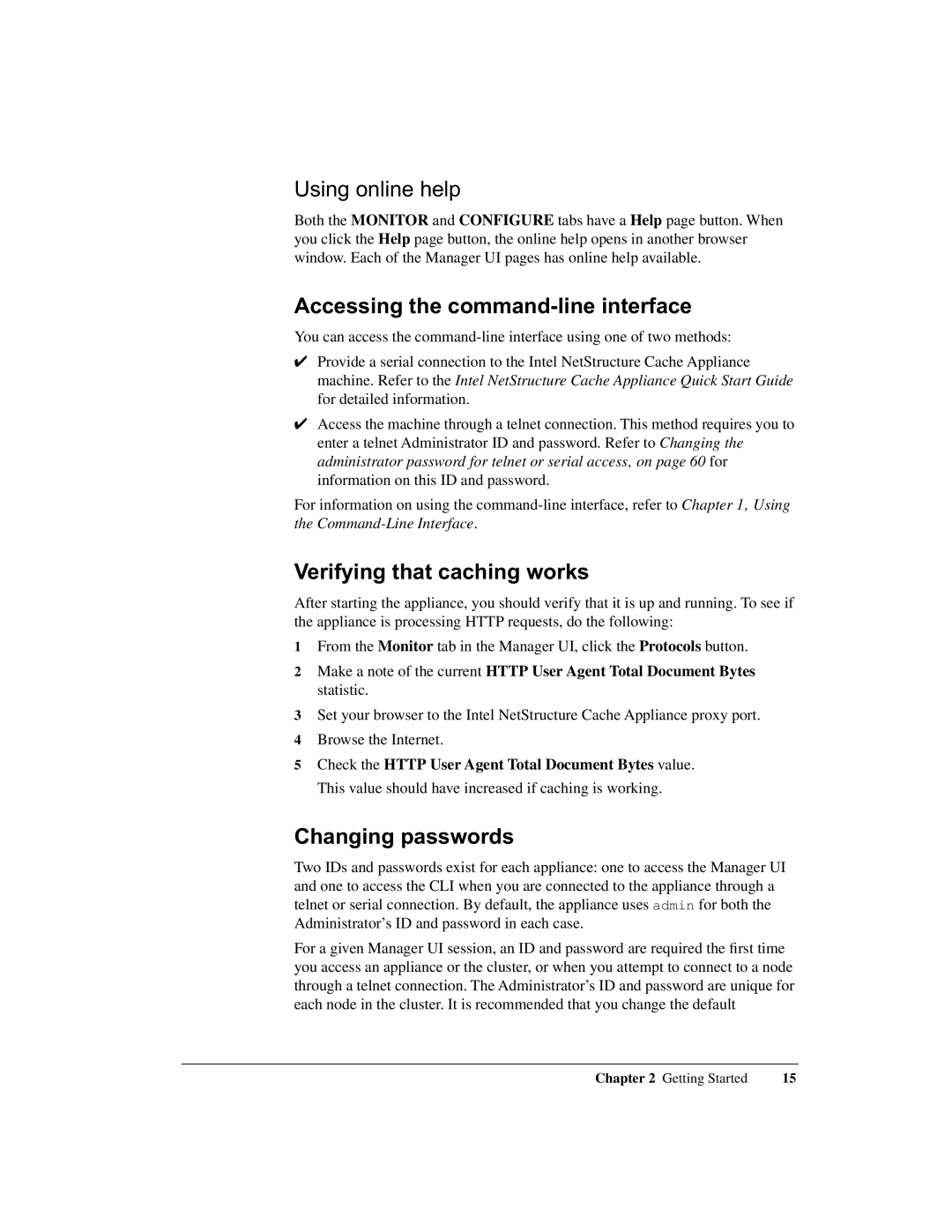Using online help
Both the MONITOR and CONFIGURE tabs have a Help page button. When you click the Help page button, the online help opens in another browser window. Each of the Manager UI pages has online help available.
Accessing the command-line interface
You can access the
✔Provide a serial connection to the Intel NetStructure Cache Appliance machine. Refer to the Intel NetStructure Cache Appliance Quick Start Guide for detailed information.
✔Access the machine through a telnet connection. This method requires you to enter a telnet Administrator ID and password. Refer to Changing the administrator password for telnet or serial access‚ on page 60 for information on this ID and password.
For information on using the
Verifying that caching works
After starting the appliance, you should verify that it is up and running. To see if the appliance is processing HTTP requests, do the following:
1From the Monitor tab in the Manager UI, click the Protocols button.
2Make a note of the current HTTP User Agent Total Document Bytes statistic.
3Set your browser to the Intel NetStructure Cache Appliance proxy port.
4Browse the Internet.
5Check the HTTP User Agent Total Document Bytes value. This value should have increased if caching is working.
Changing passwords
Two IDs and passwords exist for each appliance: one to access the Manager UI and one to access the CLI when you are connected to the appliance through a telnet or serial connection. By default, the appliance uses admin for both the Administrator’s ID and password in each case.
For a given Manager UI session, an ID and password are required the first time you access an appliance or the cluster, or when you attempt to connect to a node through a telnet connection. The Administrator’s ID and password are unique for each node in the cluster. It is recommended that you change the default
Chapter 2 Getting Started | 15 |
